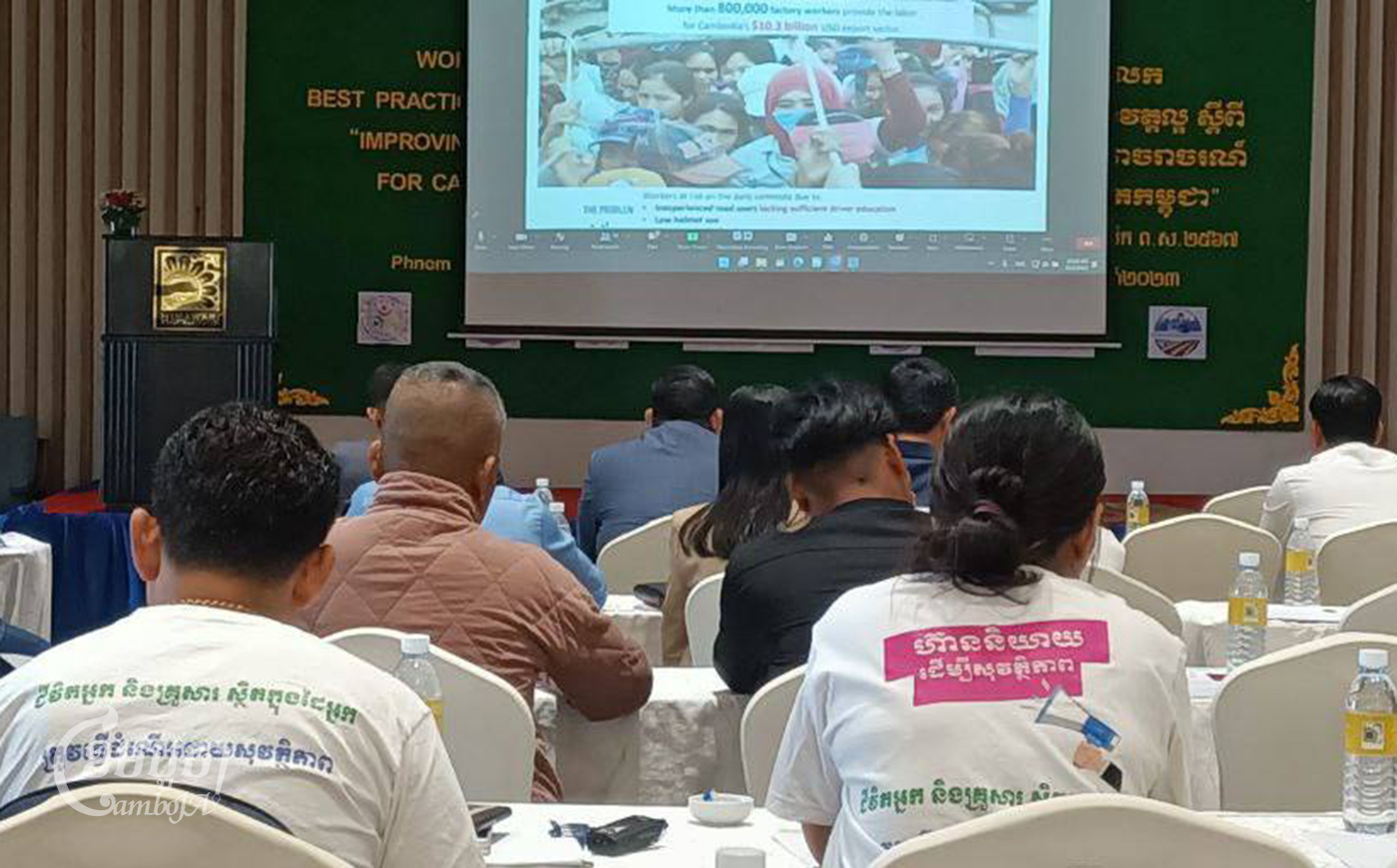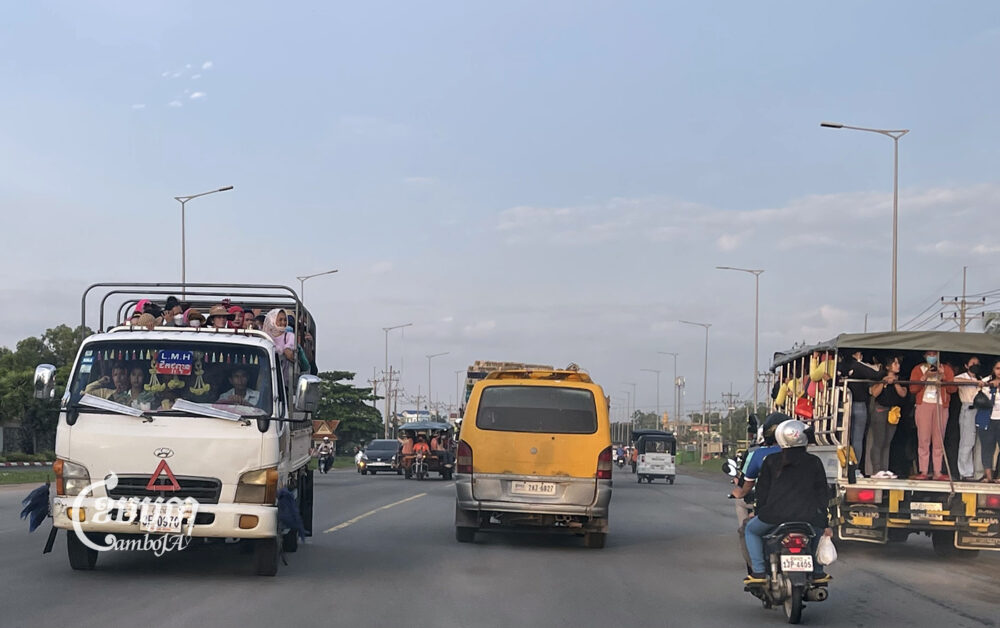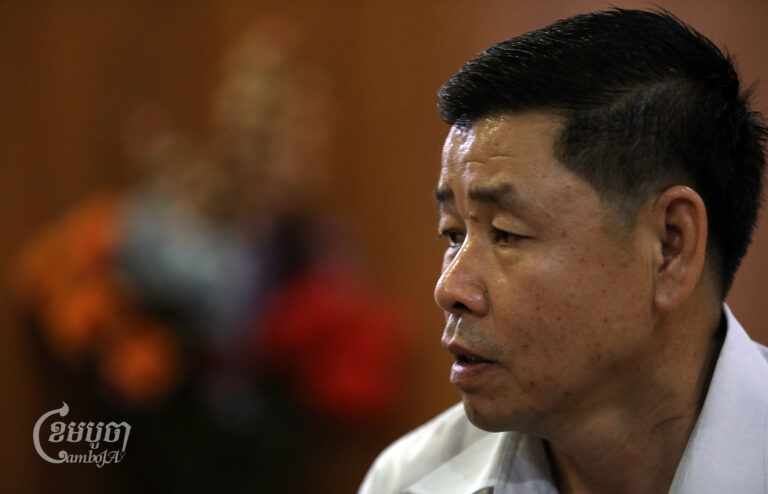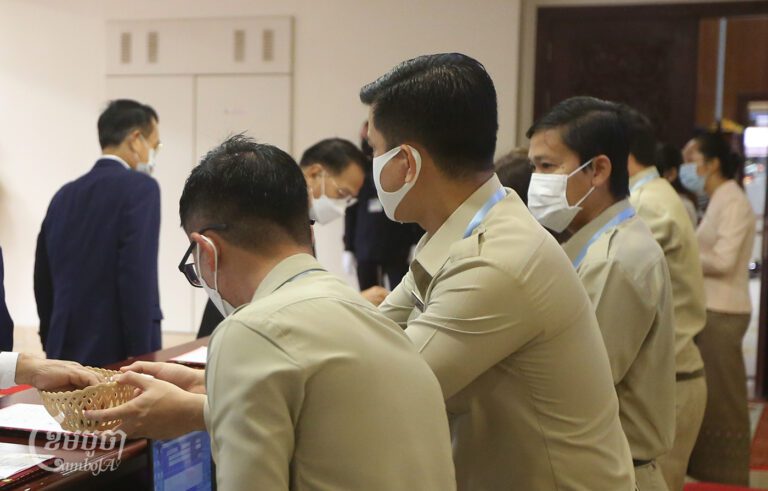Cambodia-based road safety NGO AIP Foundation has once again requested the government to implement the factory-level policy on “commuting safety for Cambodian workers” (CSCW) and compel factories to put it into practice.
On December 1, the foundation organized a workshop to share their experience and good practices after conducting the CSCW programs for four years. Some 100 participants, including government officers, representatives from national and international organizations, factories, and unions attended the event.
Foundation program manager in Cambodia Thim Sokha said in the last four years, AIP has worked closely with 450 trainers in 30 target factories to build their capacity on the CSCW policy as well as awareness sub-program “Speak up” to train team leaders to become focal points for workers to raise concerns about unsafe traveling.
The program has directly benefited about 75,000 garment and footwear workers and more than 2,600 drivers through the dissemination of information. AIP has also organized workshops and training at national and sub-national levels for more than 2,000 stakeholders and distributed 150 program-related publications.
On their achievement so far, Sokha said, “Having focused on three main components, there is an increase of knowledge in workers relating to traffic safety and workers’ road use behavior, such as helmet-wearing following advertising.” She added, “In terms of road safety, there is the expectation of a national plan to reduce fatal accident rates to at least 50 percent within 10 years.”
She also highlighted ongoing challenges including the non-participation of bus drivers and low usage of helmets by garment workers compared to the target in the program’s action plan.
As such, she urged all 30 target factories to continue observing the existing traffic safety policy and to allocate time for workers, especially team leaders to receive training as well as implement activities. She also asked for more participation from unions because they play an important role in advising workers on road safety.
As for the government, she urged them to form a factory-level CSCW policy and implement it throughout the country.
Speaking at the workshop, Heng Sophannarith, National Social Security Fund (NSSF) deputy director-general and chairman of the Road Traffic Safety Team for Workers, said in the next two years, the Ministry of Labor and Vocational Training will cooperate with stakeholders to study the mechanisms to support and encourage the gradual change of workers’ transportation in accordance with legal standards and for them to be more comfortable by 2027.
“This shows that the government has really considered all aspects [affecting] workers, not only health problems. Even workers’ travel is a concern for the government,” he said, although he did not talk about the formulation of the policy.

According to the Sophannarith, between January and October this year, there were 3,882 traffic accidents involving 4,998 victims, including 112 people who died while 1,339 were seriously injured and 3,047 sustaining minor injuries. Of the total number of accidents, 14 involved workers’ trucks and 238 victims. There was one death, 54 who were seriously injured and 183 who suffered slight injuries.
Seeing how traffic accidents continued to rise, he said the ministry has set up a Road Traffic Safety Team for Workers to educate, train and organize driving license exams. It also facilitated the inspection of vehicles and cooperated with the National Police Commissioner General to update workers’ truck drivers.
The team encourages drivers to respect road traffic laws to improve the workers’ safety in order to reduce traffic accidents involving workers. The team is composed of relevant stakeholders from the government, and national and international organizations.
To improve the safety of workers while on the road, he urged them to always wear a helmet when traveling regardless of the distance, that drivers drive within the speed limit, abide by traffic signs, fasten seat belts, and refrain from overtaking dangerously or using phones while driving. He also asked that vehicles be checked regularly, especially the steering wheels and lights. “Please do not overload [trucks] with passengers or goods,” he added.
President of the Collective Union of Movement of Workers (CUMW) Pav Sina said traffic accidents involving garment workers might have decreased from previous years but not much.
Sina, who participated in the forum, said accidents involving workers’ trucks is still a sensitive issue for workers and stakeholders, requiring more attention and everyone’s participation to reduce the numbers.
Commenting on the proposal of factory-level policies, he said it is important for workers, employers and other stakeholders to review the development of the CSCW. If it is not widely implemented, traffic accidents would affect factories’ production lines and result in income loss to workers.
“When workers are injured, they cannot come to work, which impacts the production line as it is not operating optimally. In particular, it can affect the mental and emotional well-being of workers, as well as their family members. Workers who are injured would lose their income, increasing their burden,” Sina said, adding that employers are also affected.
He also urged the labor ministry to review all factories and ensure that they are properly registered and meet the procedures for local regulations. Sina believed that if the ministry demanded the implementation of the policy in factories, employers would not be able to argue.














